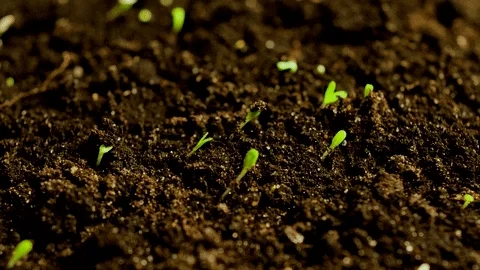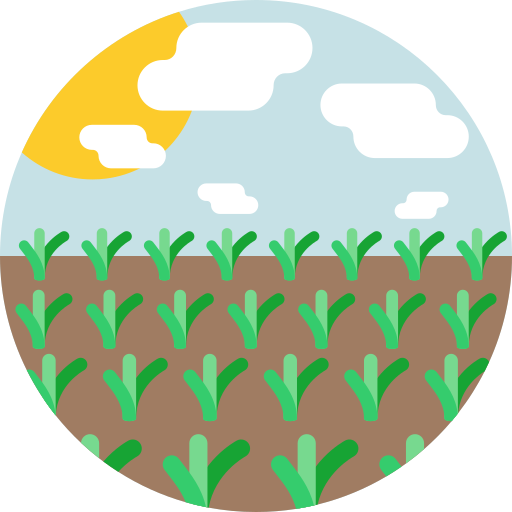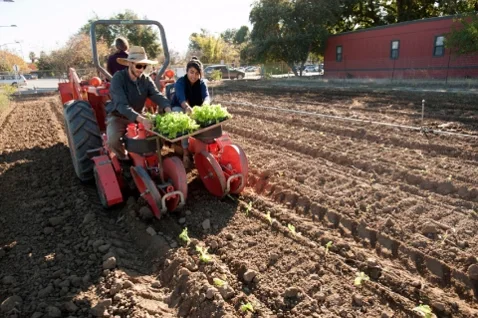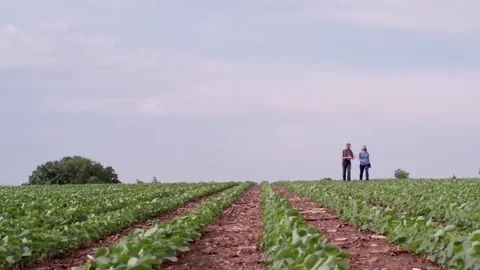
This logo isn't an ad or affiliate link. It's an organization that shares in our mission, and empowered the authors to share their insights in Byte form.
Rumie vets Bytes for compliance with our
Standards.
The organization is responsible for the completeness and reliability of the content.
Learn more
about how Rumie works with partners.
Are you fascinated by plants and seeing them grow? Do you like taking care of them?

Then, consider turning your interest in plantsinto a career as a horticulturist!
Horticulturists are professionals who help grow high-quality food and ornamental plants.
Did you know?
Horticulture refers to cultivating plants for food (fruits, nut crops, and vegetables) and plants for aesthetics (ornamental plants and flowers, and plants for landscaping).
What Does A Horticulturist Do?
Where Do They Work?

Nurseries and greenhouses: to provide properly controlled environments for the growth and maintenance of plants.

Botanical gardens: to curate and acquire various plants and ensure their health and aesthetic appeal.

Farms and agricultural facilities: to ensure optimal crop production and management.

Landscaping and architecture firms: to create and maintain visually appealing outdoor spaces in collaboration with landscapers and architects.

Research institutions and universities: to conduct plant research and experiments and/or teach students pursuing horticulture or related fields.

Government agencies and services: to provide expertise and guidance related to plant cultivation and management.
Did you know?
Horticulturists often collaborate with other professionals, such as agronomists, botanists, and landscape architects, to improve plant productivity, preserve biodiversity, and design visually beautiful spaces.
What Are Their Work Responsibilities?
Analyze and improve crop production in terms of amount and quality.
Create a crop schedule with farmers to plant and harvest at an appropriate time.
Optimize irrigation practices.
Test fertilizer mixtures to see which one works best.
Manage pests and diseases through continuous research and monitoring.

Quiz: Pick the Future Horticulturist

Amy
Likes plants and learning about different types of plants
Dislikes doing hands-on work

Samir
Likes nature and working in the outdoors
Dislikes extended periods of collaborative work

Leslie
Likes plants and helping her grandparents grow vegetables in their kitchen garden
Dislikes seeing plants wither
Quiz
Who would be an ideal fit for a career as a horticulturist?
Horticulturists enjoy doing hands-on work in the process of growing and taking care of plants. Their work involves working collaboratively with other professionals and people. Not everyone who likes plants or working outdoors may enjoy a horticulturist's day-to-day work and interests.
What is The Pay Like?
Salaries for horticulturists can differ depending on their location, skill level, experience level, and other factors.
What Are The Pros And Cons?
Are you still wondering if being a horticulturist is the right career for you?
Then, take a look at these pros and cons:
Pros
Variety of career opportunities
Variety of work environments
Use creativity to design and maintain green spaces
Help produce quality food
Have a positive impact on the environment

Take Action
So, are you interested in becoming a horticulturist?
 Here are some next steps for you:
Here are some next steps for you:
This Byte has been authored by
Alisha Navodia
Instructional Designer





